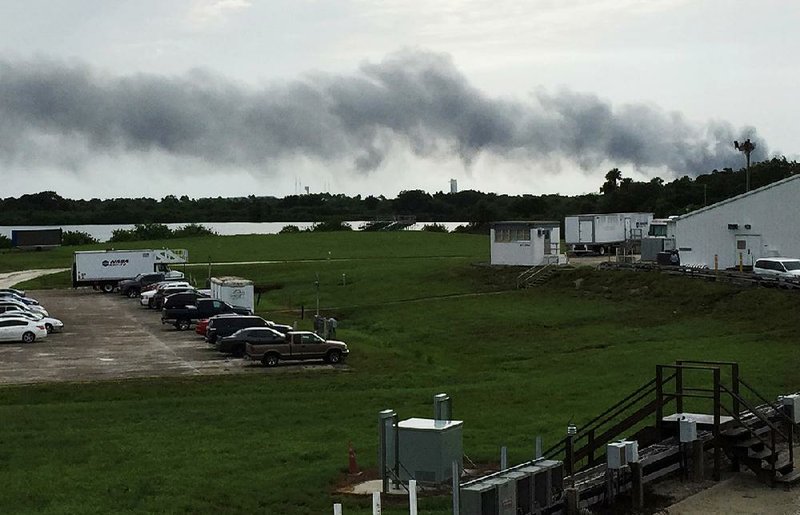CAPE CANAVERAL, Fla. -- An explosion Thursday at SpaceX's main launchpad destroyed a rocket as well as a satellite that Facebook was counting on to spread Internet service in Africa.
There were no injuries. The pad had been cleared of workers before what was supposed to be a routine pre-launch rocket test.
SpaceX chief Elon Musk said the accident occurred during the fueling of the rocket and originated around the upper-stage oxygen tank.
"Cause still unknown," Musk said via Twitter. "More soon."
The explosion -- heard and felt for miles around -- dealt a severe blow to SpaceX, still scrambling to catch up with satellite deliveries after a launch accident last year. It's also a setback for NASA, which has been relying on the private company to keep the International Space Station stocked with supplies and, ultimately, astronauts.
SpaceX was preparing for the test-firing of its unmanned Falcon rocket when the blast occurred shortly after 9 a.m. at Cape Canaveral Air Force Station. The test was in advance of Saturday's planned launch of an Israeli-made communications satellite that was supposed to provide home Internet for parts of sub-Saharan Africa and the Middle East.
A video of the explosion shows a fireball enveloping the top of the rocket. Moments later, the payload nose cone plunged to the ground, followed by more explosions.
Buildings 4 miles away shook from the blast, and explosions continued for several minutes.
Video cameras showed smoke coming from the launchpad five hours later. Most of the rocket was still standing, although the top third or so was clearly bent over.
The explosion occurred at Launch Complex 40 at the Air Force station, right next door to Kennedy Space Center, where emergency workers were on standby after the accident. At the same time, personnel were monitoring the air for any toxic fumes. The Air Force stressed there was no threat to public safety in the surrounding communities.
While the pad was still burning, it was off-limits. "We want to make sure we isolate any potential problem," said Shawn Walleck, a spokesman for the Air Force's 45th Space Wing, "because at this point, we've had no casualties, we've had no injuries, and we want to keep it that way."
By evening the fire was out, but the pad was going to remain off-limits until this morning as a precaution, the Air Force said.
Facebook spokesman Chris Norton said his company was "disappointed by the loss but [remains] committed to our mission of connecting people to the Internet around the world." Founder Mark Zuckerberg was in Kenya on Thursday, discussing Internet access with government officials.
The satellite's Israeli-based operator, Spacecom, said the loss will have "a significant impact" on the company. Spacecom said the new satellite was supposed to provide services to television and Internet operators.
The Falcon rocket destroyed Thursday is the same kind used to launch space station supplies for NASA. The last such flight took place in July. SpaceX is one of two companies making deliveries. The company also is working on a crew capsule to ferry station U.S. astronauts.
Two NASA astronauts were conducting a spacewalk 250 miles up, outside the International Space Station, when the explosion occurred. Mission Control did not notify them of the accident, saying all communication was focused on the spacewalk.
NASA later put out a statement, saying the space agency remains confident in its commercial partners, SpaceX included. The space station is well stocked and able to weather any potential delays to upcoming SpaceX deliveries, NASA said.
At the same time, NASA said it remains on track for next Thursday's launch of an asteroid-chasing and sampling spacecraft, the first of its kind for the U.S. The spacecraft and the Atlas rocket were inside a hangar at the time of the explosion, barely 1 mile away; preliminary inspections show both to be in good shape.
SpaceX of California had been ramping up the launch pace to make up for a backlog created by a launch accident in June 2015.
Information for this article was contributed by Rodney Muhumuza and Daniel Estrin of The Associated Press.
A Section on 09/02/2016

